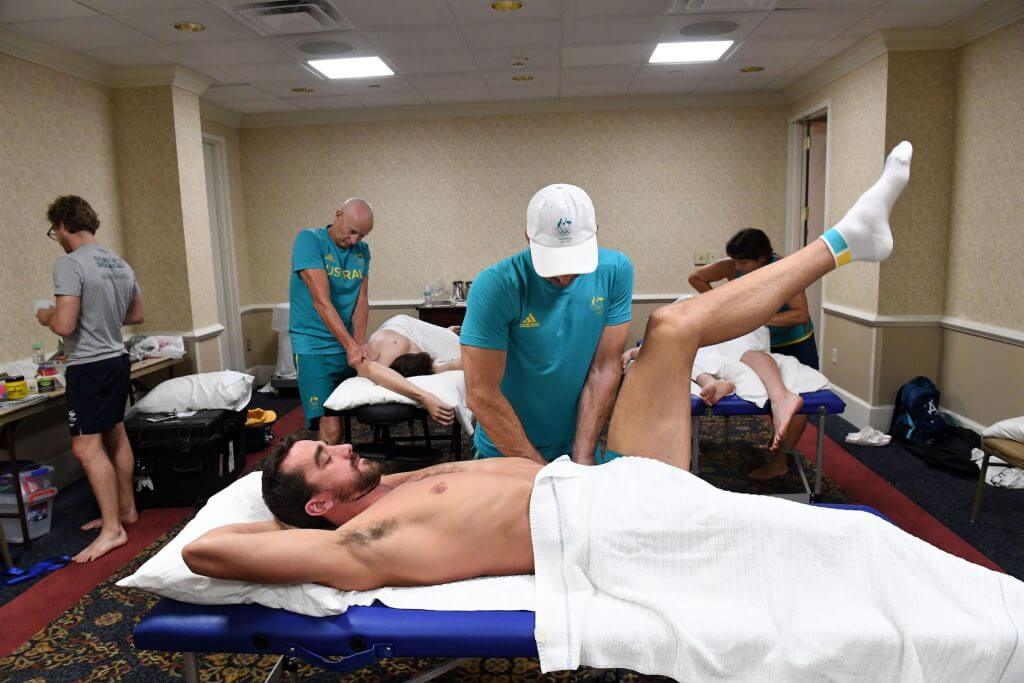Wellness Wednesday: 21 Body-Care Strategies to Set Swimmers On a Path to Better Health

Swimmers’ Path to Personal Wellness with 21 Body Care Strategies
Swimming is a sport that demands dedication from its athletes. It’s not uncommon for swimmers to wake up before dawn and jump into a cold pool as part of their daily routine. Weekends are often spent at competitions, where athletes push themselves to their limits. In swimming, athletes often face the challenge of balancing their intense training schedules with their physical and mental health. It can be tempting to prioritize performance over personal well-being, but it’s important to remember that taking care of oneself is crucial for long-term success in the sport.
Acknowledging the fundamental significance of mental and physical health is crucial for the success of any swimmer. The connection between athletic success and a healthy way of life is vital, and it’s essential to maintain harmony between our dedication to swimming and our well-being.
Here are some tips to ensure you are taking care of yourself.
- Get enough sleep. Sleep is essential for physical and mental health. When you don’t get enough sleep, you’re more likely to get sick or injured, and have trouble concentrating. Aim for 7-8 hours of sleep per night.
- Take a break once in a while. It’s important to take breaks from swimming, even if it’s just for a few days. This will give your body a chance to rest and recover.
- Eat clean and healthy. Eating a healthy diet will give you the energy you need to swim your best. Make sure to eat plenty of fruits, vegetables, and whole grains. Avoid processed foods, sugary drinks, and excessive amounts of unhealthy fats.
- Watch your diet. It’s important to watch your diet, especially if you’re trying to lose weight or improve your performance. Be mindful of what you’re eating and drink plenty of water.
- Know your body’s limits. It’s important to know your body’s limits and not push yourself too hard. If you’re feeling pain, take a break, or adjust the work you are doing to allow the pain to disappear.
- Adopt good hygiene. Good hygiene is important for both your physical and mental health. Make sure to shower regularly and keep your hair and nails clean.
- Spend time outside. Getting some fresh air and sunshine is good for your physical and mental health. Try to spend at least 30 minutes outside every day.
- Learn how to prioritize what is important to you. It’s important to learn how to prioritize what is important to you. This will help you make decisions that are best for your health and well-being.
- Be active. Swimming is a great way to stay active, but it’s also important to do other forms of exercise. This will help you stay in shape and reduce your risk of injuries.
- Drink plenty of water. Water is essential for good health. Make sure to drink plenty of water throughout the day, especially before, during, and after swimming.
- Find a hobby. Having a hobby is a great way to relax and de-stress. Find something that you enjoy doing and make time for it in your schedule.
- Participate in activities you enjoy. There are many activities that you can do to improve your mental and physical health. Find activities that you enjoy and make time for them in your schedule.
- Put your mental health first. It’s important to put your mental health first. If you’re struggling with stress, anxiety, or depression, seek professional help.
- Spend time with those that are close to you. Spending time with loved ones is a great way to relax and de-stress. Make time for the people who are important to you.
- Make time for yourself. It’s important to make time for yourself. This will help you relax and recharge. Do something that you enjoy and that makes you happy.
- Try to make the most of every situation. Even when things are tough, try to find the positives. This will help you stay motivated and upbeat.
- Have a positive mindset. A positive mindset is essential for good health. Believe in yourself and your abilities.
- Stretch after workouts. Stretching after workouts helps to improve flexibility and reduce muscle soreness.
- Get a massage. Massages can help to reduce stress, improve circulation, and relieve muscle tension.
- Warm up and cool down after exercise. Warming up and cooling down helps to prevent injuries and improve performance.
- Use visualization techniques to enhance performance. Visualization techniques can help you to improve your focus, concentration, and motivation.
A balanced lifestyle is critical for overall health and peak performance in physically demanding activities such as swimming. This includes getting enough sleep, eating a healthy diet, staying hydrated, knowing your body’s limits, and practicing good hygiene. Outdoor activities, hobbies, prioritizing mental health, and spending quality time with loved ones can all help with mental well-being. Warmup, cool-down, and stretching routines should be used to diversify physical activities. To improve focus and motivation, cultivate a positive mindset and use visualization techniques. Finally, maintain balance by scheduling time for self-care, seeking professional assistance when necessary, and engaging in personal activities.
Developing these habits can help improve swimming performance, overall health, and personal wellness.



